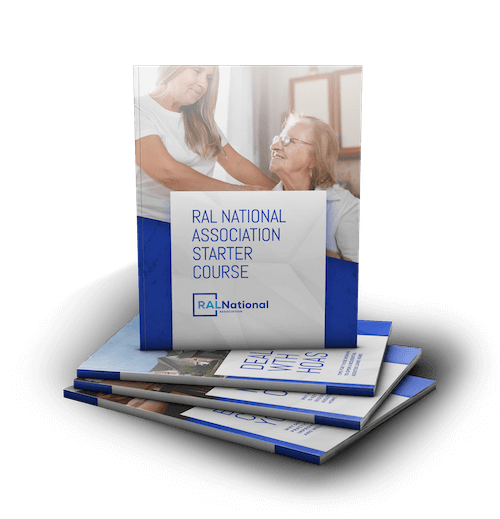The summer is in full swing, and temperatures are soaring. Keeping hydrated and staying cool might be easy for some, but what about seniors who may be dealing with other physical and medical complications? Here are some tips to keep seniors safe this summer.
Blog:
Summer fun in the sun is certainly loved by all, but some may really need to be more careful than others.
All of the summer sun and its associated fun can bring about some unwanted and unnecessary suffering for seniors.
As a result, caregivers should raise their levels of concern for elderly individuals to be more cautious in the summer heat.
Owners and operators of residential assisted living homes should ask themselves key questions to ensure quality care during the summer months.
- Why must seniors be extra cautious during the summer months?
- What health conditions may put seniors at risk as a result of heat exposure?
- What can caregivers do to ensure that seniors are careful and remain safe?
CDC GUIDELINES FOR HEAT AND OLDER ADULTS
Below is a Caretaker Checklist designed to guide your decisions about activities during the summer months when a senior is involved.
There are several sure ways of keeping an eye on senior safety by asking relevant questions
- Are residents drinking enough water throughout the day?
- Is the air conditioning in optimal condition in the residential assisted living home?
- Do seniors in assisted living have the knowledge of what to do to keep cool?
- Are any residents showing any signs of being heat stressed?
WHY ARE OLDER ADULTS MORE PRONE TO HEAT STRESS?
The answer to this question is quite vast. However, below are the top reasons seniors tend to be more prone to heat stress.
- Sudden changes in temperature affects seniors because their bodies are not able to adapt as quickly as those of their grandchildren, for instance.
- Medical conditions can also affect the body’s ability to adjust its temperature to handle external heat.
- Some prescription medications affect how well a senior’s body can adapt to sudden or even moderate increases in external temperature.
STAY COOL, STAY HYDRATED
It is imperative that owners of residential assisted living homes do what is necessary to mitigate heat stress regardless of health conditions or medication use.
Here are eight tactics that can assist in providing quality care during the summer.
- Stay in air-conditioned buildings as much as possible.
- Do not rely on a fan as your main cooling source.
- Drink lots of water. Do not wait until seniors are thirsty, they should stay hydrated.
- Find alternative ways to cook summer meals to avoid overheating the home.
- Wear loose, lightweight, light-colored clothing.
- Take cool showers or baths to cool down.
- Do not engage in very strenuous activities and get plenty of rest.
- Keep an eye on seniors to make sure they aren’t showing any signs of heat conditions.
STAY INFORMED ABOUT WEATHER CONDITIONS
Regional meteorologists are a great resource for residential assisted living homes during the summer season.
So often, the forecast will be the same – hot. However, residential assisted living homes should be interested in:
- Hottest time of the day
- Type of heat is forecasted, whether hot and dry
- Humidity levels
Knowing the type of heat may very well alter your arrangements for activity, food, travel, visitation and hydration.
Heat stress has some pretty common symptoms, which can be associated with other illnesses.
However, when these symptoms manifest during the hottest part of the day, it becomes evident that an elderly individual is being deleteriously affected by the heat.
- Headache
- Nausea
- Vomiting
- Muscle cramps
- Irritability
- Unexplainable fatigue
- Loss of appetite
HEAT STROKE IN SENIORS IS DEADLY
While out in the sun, be aware of the weather, time, and signs that seniors are experiencing. The interior temperature of your car can also skyrocket in no time when sitting unprotected from the sun. If you have to drive during summer, you can have a car shade installed to help keep your car cool, thus making your drive more comfortable.
Many seniors might not even notice that they’re overheating – until illness manifests.
Also, chronic health conditions and common medications, like beta-blockers for high blood pressure, make it harder for the body to respond to heat.
So, what exactly is heat stroke?
What Is Heat Stroke?
Heat strokes happen when the body overheats, typically to 104 degrees of more. A heat stroke is a serious condition that requires immediate medical attention.
If a heat stroke is left untreated, damage can occur to the:
- Brain
- Heart
- Kidneys
- Muscles
Additionally, the time between symptom onset and treatment can determine severity of damage, or in some cases, death.
Heat is something that must be taken very seriously in residential assisted living. What can your caretakers do to prevent seniors in your home from suffering unnecessarily?
FIVE WAYS TO PREVENT HEAT STROKE IN SENIORS
- Understand Health Conditions
Verify with their doctor to find out if medications or treatments could affect the way their bodies regulate temperature.Ask if there are special things you need to do if you see signs of heat stroke. For example, common remedies like sports drinks or excessive water can be harmful for some seniors.
- Identify Symptoms Quickly
If a senior shows signs of overheating, provide posted protocol for your residential assisted living home to properly evaluate symptoms and respond immediately. If they are overheating, call 911 or their doctor to get professional medical attention as soon as possible. In the meantime, try to cool them down using the treatment methods listed.
- Monitor Water Intake and Proper Clothing
Remind residents to drink water throughout the day. A body that’s hydrated feels cooler and regulates temperature better. But avoid water that’s too cold, it could cause cramps. Convince them to wear loose-fitting and light clothing.
- Keep the temperatures at home cool
Keep the house as cool as possible by using solar curtains to block out sun and heat. Hire residential hvac services to secure an indoor air conditioning unit.
5. Be Cautious of Electric Fans
Electric fans can trick the body into thinking it’s cooler than it actually is and can do more harm than good, especially for seniors. The CDC recommends using electric fans only when the temperature is below 90 degrees. Once the temperature reaches the 90s, it’s better to use an air conditioner to cool down. You may also consult a home heating and cooling company or a professional air conditioning and heating service on the best HVAC system that fits your place for all kinds of weather. You can also look for a well-skilled furnace installation company to assist you in getting a new one. If you decide to get an HVAC service, consider hiring Bellingham HVAC to help you.
THE RIGHT RESOURCES CAN BE A MATTER OF LIFE OR DEATH IN SENIOR LIVING
Every quality residential assisted living business must be centered around keeping seniors safe and healthy.
As owners and operators, you cannot do this on your own.
The Residential Assisted Living National Association is here to provide information, resources and support.
We provide the kind of support that empowers owners and operators to administer quality senior care.
Find the support you need by clicking here.
RALNA advocates for residential assisted living business owners and operators with guidance for legal expertise, continued education, national marketing, group purchasing power and a continual positive voice for the industry.
For quality care in residential assisted living, get connected in order to ensure your business success while keeping seniors safe and healthy.
The decisions you make about your RAL business are a matter of life and death.











